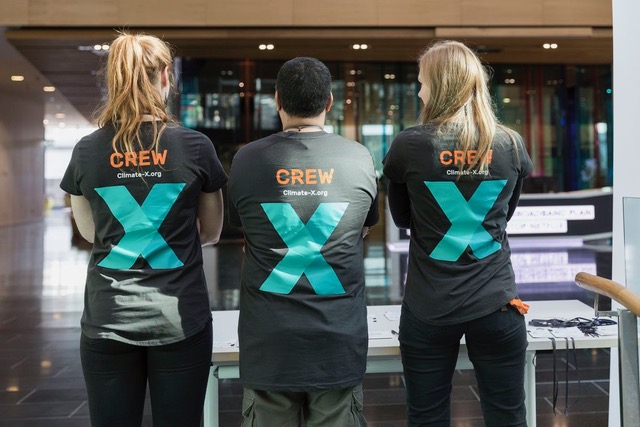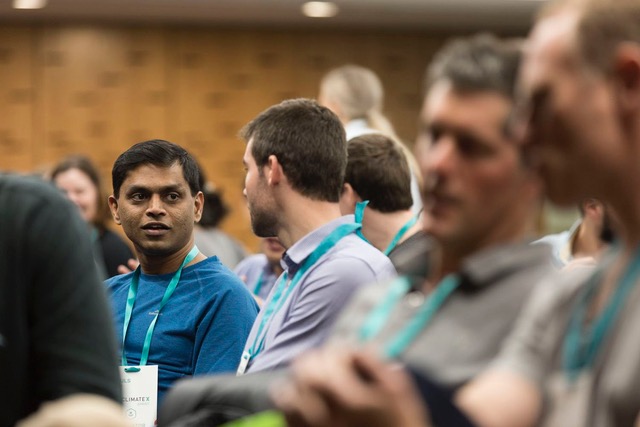Lights, action, synergy: overcoming a deficit
“It was clear that one could not really change the situation with technical improvements. You have to change the awareness of society” Petra Wolf.
Grand beautiful tools exist to simultaneously work with our awareness and technical changes. Yet, they’re wildly underutilized.
Can we overcome this deficit?
Our lack of action, in our own self interests, is perplexing. There are many wonderful examples of people cooperating, voluntarily, to protect common resources, create thriving communities and/or help other people and animals. However, we’re facing dramatically poor futures and failing to act with the required speed on big global issues (e.g. climate change, see Hope and disappointment).
In looking to address this I like the theories of everything, systems that model the breadth of human knowledge. In instances these are effective (e.g. SA Health’s Integral Performance Framework, see Holistic Change). Yet, Integral Theory and Human developmental stages have been around for decades. Impact is underwhelming.
What can we do?
First kill all the theories!
Transformations for a thriving world require us to make significant changes. However—to get practical & scaled-up, impacts—perhaps we should first kill all our theories?!
At the very least, I’d like to invite our theories in AFTER practitioners’ design and then only to build on practice and its trial and error insights. Climate-x got me to think these radical thoughts.
Climate-x brings together entrepreneurs and innovators to go beyond business as usual. It helps groups to scaffold ideas together and create synergy between concepts such as profit and reversing global warming (our modern day thinking holds these in conflict with each other).
Around these topics it’s common to hear concepts such as: “Breakthrough rather than breakdown”; “You can’t solve problems with the level of thinking that created them”; and, “Double to triple loop learning”. They are compelling and somewhat nebulous. How to implement gets a little more clear with Climate-x, something I am personally engaged with.
Personally
I’ve been a sustainability practitioner all my life. This is with family, communities and worldwide. One of my earliest memories is getting my parents to stop using aerosols—I’d heard and understood they made “holes in the sky”… I was not the easiest child to raise!
My work’s continually shifted—through international convention and law to business and society enablement. For example, I helped change the Basel convention in 1994—international law that now bans many hazardous waste shipments. Breakthrough! Yet exports to China mostly stopped in 2018. Impact is more complex than changing the rules.
Regenerative solutions are a good example. They are profitable (e.g. Allbirds, Interface and energy efficiency). However, this profitability is a paradox—our modern-day thinking predominantly sees costs. We consistently fail to act in our own, financial or otherwise, self-interest.
Climate-x
Rapidly overcoming such common dilemmas requires new approaches. To do this, over 3 days, around 100 Climate-x participants prototype, validate, build and re-form climate solution business models. The atmosphere and intensity reveals inconsistencies. This challenges us to remake how we understand problems.
At Climate-x’s recent sprint we saw business models emerge which drive climate solutions, reverse global warming and, while scaling, increase profitability and ecological outcomes. That synergy represents a new “level of thinking”.
Triple loop
What is happening at Climate-x is we’re: remaking our own understanding (facilitators and participants); stepping past modern-day paradigms; and, reconceptualising how business models can work.
These outcomes are scaffolded. There is no learning environment teaching the difference between a linear change and recasting paradigms. Instead the rapid prototyping environment (the groups were still going, high energy, at 1 am!) alongside tools that appear straightforward but work as iterative matrix shifting structures—e.g. lean canvas—do the lifting.
Outcomes
Climate-x suggests:
1 – We can create environments feeding breakthrough success to deliver for us, individually and globally.
2 – Clever, applied and practical tools, rather than theory per-se, drives paradigmatic shifts.
3 – These shifts, things getting exponentially better, may answer exponentially deteriorating challenges (e.g. climate change).
Climate-x suggests we can be informed by wonderful theories but, in most circumstances, effective tools don’t mention these insights.
[A version of this post first appeared on Action Research Plus]


Breakthrough
What’s a breakthrough for me maybe ordinary for you. That’s where some models can help. For example, a shift in how we make sense of the world around us is a breakthrough. We’re seeing and understanding what was previously invisible. That’s big!
For more on these shifts see New levels: stepping up.
Resources
Posts and links
Voluntary effort, created by people wanting to save resources, can excel protection. See The struggle to govern the commons
Tools to assist us to shift awareness—the lean canvass as part of the Climate-x sprint – see this post.
New levels of thinking—what does it mean? See: Stepping up
Climate-x is a growing collective of talent and passion on a mission to deliver innovation, systems, products, and new behavior. More here>
Feature photo: Explaining the Kosmos with garlic, by Festina Lentívaldi, (be) Benevolution. Reuse: Creative Commons BY-NC 3.0 US. Other photos Climate-x
Key and Peele: Catcalling in the Olden Days
Never doubt that things change, for the better, radically. Sort of 🙂
2 Comments
Subscribe
Get the newsletter (story summary).
Recent posts
Coming home
We belong to and are of the Earth but we bypass our sense of belonging. I missed this leaving home and my story mirrors our larger, human-wide journey. What do I need to come home?
Soulprint: Peak nature
Extraordinary: a paradigm shift by 147 governments and the UN endorsing “humans and nature are spiritually connected.” Invitation: to build on this for yourself and all of us.
We are in a portal
I’ve a deep knowing: we humans have shifted. That’s disorienting so here’s 3 handrails to help: this is sourced in bliss; lubricated by peak oil; agreed by UN & 147 nations; and, all with dragonflies!


Thank you Simon. Nourishing to contemplate.
For me, I suspect the invitation to ‘kill the theories’ could be a perilous one… as evidenced in the anti-intellectual undercurrent in parts of the postmodern worldview. I suspect you see this already, but am curious to hear more from you about this vexing problem.
Seems to me that the theories are indispensable as invitations to look in ways that I cannot imagine exist given my current ‘theory of everything’ through which I live (usually unconsciously). A useful theory is like bony a finger pointing at the moon that exists not as a reflection in a puddle but aloft in the night sky. Without the theory I might well spend my days looking downward in search of puddles to plunder in ever more frantic ways in search of that which is ever-present if only I know where and how to look.
The problem with theories seems to be my attachment to them, to the need for them to be right as a way of keeping the fear of uncertainty at bay, and the ways that fear limits my ability to hear new ideas and adapt my thinking to include them. Or worse, where my operating theory says that all theories are bad, which is like cutting off my head in the hope that a world without logic will be better than a world built on broken logic. Probably not so.
I find I flourish best in the company of those who actively support the evolution of new and novel ideas, rather than engage in an endless tournament of kung fu in the matrix of mind in search of a winner of who has the best pre-existing theory, or navigate around the sensitivities of those too tender to argue for anything, leaving us all awash in an ocean of undifferentiated mush.
I imagine you see this often at Climate-X, which sounds like a wonderful context where the participants come already open, already expecting their views on what is possible to be shaken to the core, already excited to learn the unexpected, already hopeful to find shared understanding of ideas they do not yet know to imagine.
thank you for the wonderful work you are doing to support the emergence of new ways to live sustainably. When I gaze into the eyes of the children, little else seems to matter.
T, lovely to hear from you and beautiful thoughts.
I do agree theories are indispensable. Philosophy ‘theory’, I believe, has led some big society and thought changes, preceded and set the scenes for paradigm shifts, and underpins many progressive thought practices and ethics.
I’m with you on not wanting to do everything new, meet challenges and more, with trial and error. Metaphorical maps help me a lot. And at the same time, I agree a problem seems to be our attachment to such models.
It’s only too often I’ve watched people/experience responses where folks say ’that’s brilliant, love it’ or things like that but the theory is not useful and cannot be explicitly used in practical settings. For example, at the core of Climate-x is a meta-modern business model creation and collective stage shift philosophy. Stages and integral theory are woven through the design of the climate-x sprint.
Yet, there’s no way meta-modern business could be used more widely or explicitly in that context. I tried. It really was better to leave it as informing my understanding and work with the practical tools (such as social/meta lean canvas) that exposed our/participants’ inconsistencies to ourselves. And, thus, reformed and up-leveled our thinking, delivering winning synergistic, past business-as-usual, business models.
Climate-x, yes absolutely, I agree. People come open and enthusiastically participate. And I was constantly surprised, even although I think I know better (a genuinely lovely experience—surprise) at the level of knowledge and aptitude. It takes a long time for people to think outside of what we’re programmed with, mostly the modern-day atomistic, deterministic pattern. That is we can work out everything that goes on in the world and it’s nothing, particularly, to do with us, our own cognition and meaning-making systems or emotions and feelings.
It’s a very sticky collective story and one of the reasons I loved climate-x for its ability to shatter that structure and move to the next level of thinking. In a 3 day event that’s a phenomenal outcome.